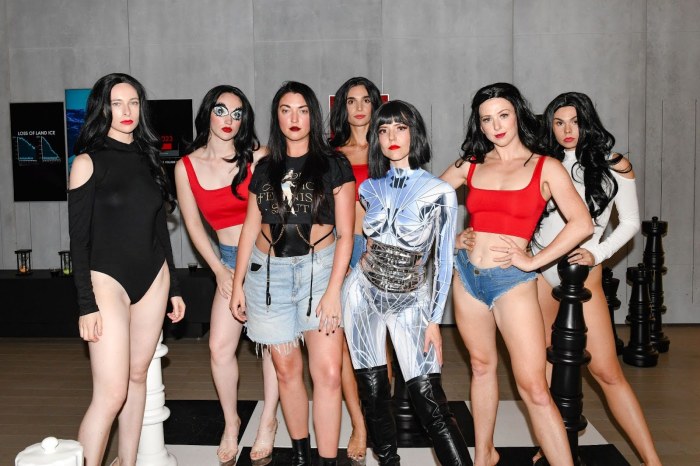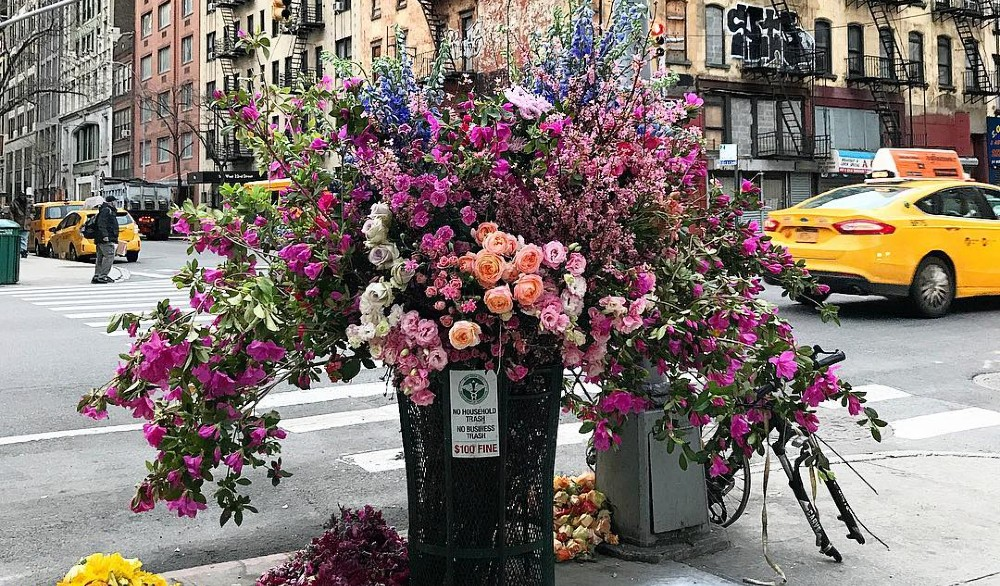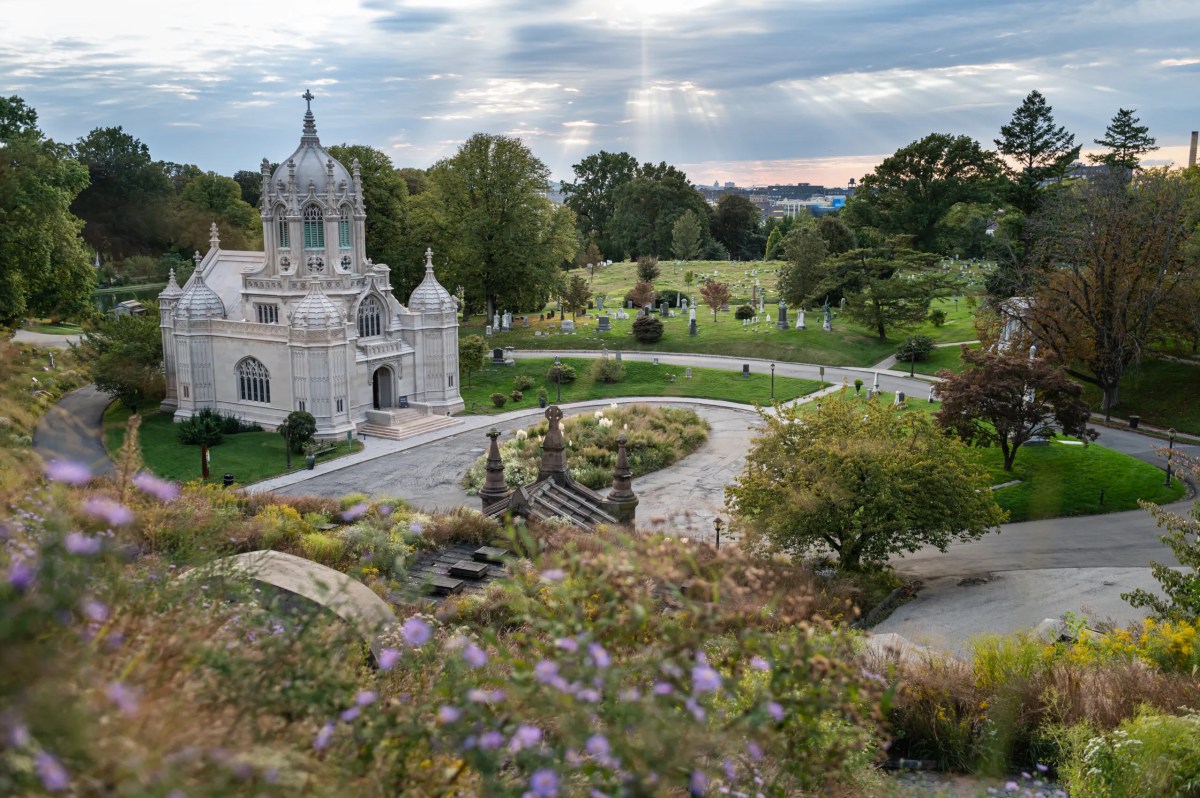Part of the Film Society of Lincoln Center’s 33-film series celebrating 1977’s diverse year in cinema, Robert Altman’s “3 Women,” notes the program’s press material, presents “a languid sense of dread and claustrophobia, in which three social outsiders (Shelley Duvall, Sissy Spacek, and Janice Rule) form an unusual bond around a Palm Springs health spa for the elderly.” Gerald Busby, a longtime Chelsea Hotel resident and frequent arts contributor to this publication, wrote the film’s music. In anticipation of its 14 screenings at the Lincoln Center series, we asked Busby for his recollections of securing the assignment, then composing and recording the score.
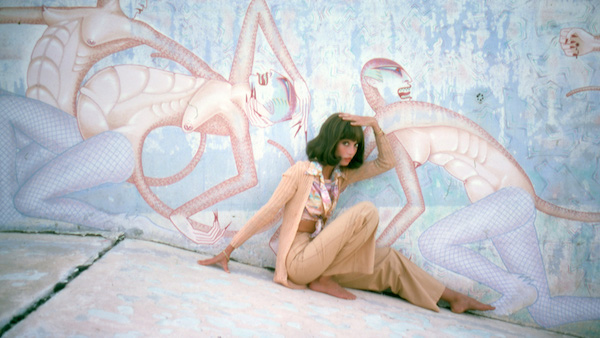
BY GERALD BUSBY | In April 1976, when I was 41 years old, my life was in the tempestuous and exhilarating stages of becoming a composer. My first commission, the score for Paul Taylor’s dance piece “Runes,” had come a year earlier, and it had been a success. Still, I was anxiously riddled about what to do next.
At the time, I was living with my boyfriend, Rafe Blasi, in a loft on Seventh Ave. and W. 27th St., just opposite the Fashion Institute of Technology. A giant metal trash container, used to collect debris from a building being demolished, stood at the curb just outside our front door. It was filled with arms, legs, and torsos from dismembered manikins and epitomized an only-in-New York scene. People walking by would reach into the pile of plastic limbs, pull out an arm or a leg, look it over, then toss it back into the container with a look of disdain. Rafe and I considered assembling a pile of arms and legs near the large windows at the front of our loft as an homage to the fashion industry. Rafe was a unit publicist for movies that were about to open. He wrote press releases and arranged screenings for critics. He knew other public relations people in the movie industry, including Robert Altman’s full-time publicist, Mike Kaplan. Altman in the late ’70s was writing, directing, and producing three films a year and selling them to 20th Century Fox for distribution. Alan Ladd Jr. was Altman’s contact and primary supporter at Fox, and he got a green light for “3 Women,” a film based on a dream and shot without a script in the desert near Palm Springs. It was a totally improvised movie, and it represented Altman at his most daring, willing to risk his money and reputation on a bizarre idea.
Rafe sent Altman a cassette containing a suite for solo flute I had just written called “Noumena.” The performance was by Michael Parloff, a brilliant young flutist just out of Juilliard, whom I met in a restaurant called Ruskay’s, where I cooked Sunday nights. Michael was hired to serenade the diners and played virtually every solo flute piece in existence. Over steaming carrots, I absorbed his beautiful flute sounds as I plated my filet of sole Helen Corbitt, a dish I created to pay tribute to the first chef I ever idolized. In the early ’50s, the original Neiman Marcus in Dallas hired Helen Corbitt to create a restaurant called the Zodiac Room. There, at the age of 15, I discovered the thrill of eating imaginatively conceived and skillfully prepared food. And now, as a cook at Ruskay’s, I was connecting with a virtuoso flute player who was to become the star of my first film score and the principal flutist with the Metropolitan Opera Orchestra.
“Noumena” impressed Altman enough to consider me, along with two other composers, for his new film, “3 Women.” But it wasn’t Altman alone who made the final decision. It was his staff of office workers and editors, as well as friends and actors he’d worked with, such as Elliott Gould, Lily Tomlin, and Peter Boyle. It was a late Friday afternoon when they gathered in Altman’s office for a drink and a little grass. When everyone was sufficiently drunk and stoned, Altman, asked for quiet, saying merely, “I want you to listen to some music.” Altman played music by each of three composers he had chosen, and he used a stop watch to determine exactly how long the group listened to each without commenting. The composer whose music lasted longest in silence was the winner. It was mine.
As I was writing the score in December 1976, Altman told me how he’d gone about finding original music for “3 Women.” “I wanted something abstract, something none of my staff had ever heard before and something they’d never on their own choose to listen to.” He found me in his Zen-like way, and I made a deal with him when he called to tell me the job was mine. I wanted Michael Parloff, who played my music beautifully, to be the flute soloist in the orchestra assembled to record my score. John Williams, who wrote music for Altman’s “The Long Goodbye,” chose every other instrumentalist in the ensemble, virtuoso studio musicians who could readily read modern music.
I was especially nervous about facing those ace musicians as I took the podium, to tell them, right off the bat, that I’d never conducted before. But I did it, then quickly added that my score was really chamber music (19 instruments), and I hoped they’d follow Michael’s example and just conduct themselves. They at first looked dismayed, then, as the session progressed, they took charge and corrected themselves and repeated takes they didn’t like. I was immensely relieved and flattered that my music had won their respect. It was Michael’s flute playing that really convinced them, and during the lunch break they paid him the ultimate compliment of camaraderie by exchanging stories and quips about how different things used to be for professional musicians. Two of them had studied with musicians who played in the NBC Symphony conducted by Arturo Toscanini.
The finished recording of my music for “3 Women” thrilled me. I had trouble grasping the fact that my first film score had been recorded by the best studio musicians in Hollywood, and it was for a Robert Altman film. I kept thinking of my brother Marion, 16 years older than I, who had been a high school band director in Texas, and was my first mentor and guide in music. How I wished he were alive and could hear my score for “3 Women.” It had passages that sounded like all the musicians he introduced me to in the early ’50s — Stan Kenton, the Four Freshmen, and June Christy. I felt certain he would love it.
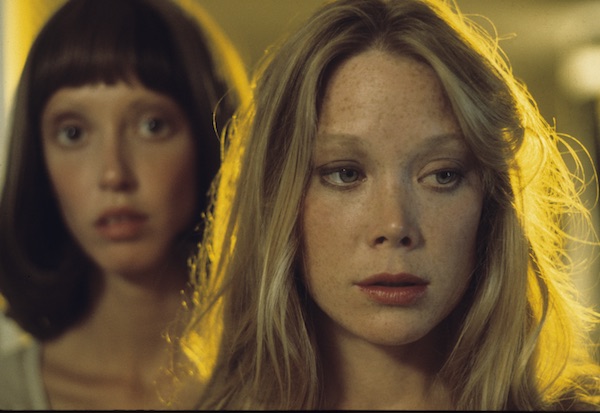
Now, 40 years later, “3 Women” has become an international cult classic and is being featured by the Film Society of Lincoln Center this August, with 14 screenings. I still have trouble comprehending the reality of its success and the enduring devotion of fans around the world. Not bad for an East Texas Baptist who, as a teenager, toured the south with an evangelist named Angel Martinez and played gospel music to crowds of 3,000 in small-town football stadiums. That taught me how to write movie music, how to keep the show moving, and persuade the Bible-toting attendees to give their hearts to Jesus and put their money in the basket to keep our “Campaign for Christ” on the road.
My good fortune with “3 Women” continues. I have just completed an opera based on the film with a libretto by Craig Lucas and Frankie KL. This is another incarnation of Robert Altman’s extraordinary creation. I’ve dedicated it to his memory with love and deepest gratitude.
“3 Women” (runtime, 124 min.) screens as part of the Film Society of Lincoln Center’s “ ’77, a 40th Anniversary Survey of a Diverse Year in Cinema.” At 165 W. 65th St. (btw. Broadway & Amsterdam Ave.). For tickets ($14, $11 for students/seniors, $9 for members), visit filmlinc.org. Screenings on Fri., Aug. 18, 4:15pm & 8:45pm; Sat., Aug. 19, 4:15pm & 9:30pm; Sun., Aug. 20, 4pm & 8:30pm; Mon., Aug. 21, 4pm & 9:15pm. Tues., Aug. 22, 4pm & 8:30pm; Wed., Aug. 23, 4:30pm & 9pm; and Thurs., Aug. 24, 4:30pm & 9:15pm.










